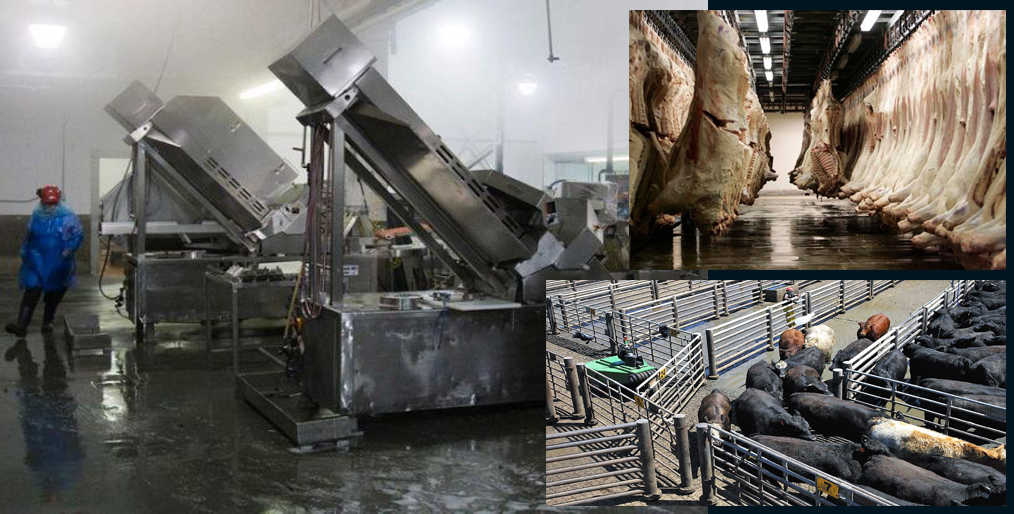
[caption id="attachment_4349" align="aligncenter" width="1014"] File Photo[/caption]
In Cargill Inc’s High River, Alberta Plant one-third beef supplier in Canada. Its 391 employees were sickened by the coronavirus, when the company suspended operations according to provincial health officials.
But Maple Leaf Foods (MFI.TO) decided to idle a poultry plant for eight days, in Brampton, Ontario, after just three workers were infected.
In Canada’s fight against the pandemic, public health officials are mostly leaving decisions on closing meat plants to the companies, even though the authorities have power to do so. Alberta Health Services (AHS), for example, could close a plant with unsafe conditions, spokesman Tom McMillan said.
The impact of such decisions extends beyond plant walls. They are at the heart of Alberta’s two largest community outbreaks, and could foreshadow dilemmas likely to emerge as other industries restart.
Canada’s stance contrasts a more active U.S. political role with infected plants, as close-quarters work has led workers in numerous North American plants to fall ill or walk off the job. President Donald Trump ordered meat plants on Tuesday to stay open, and state and local officials earlier pushed successfully for some to close, including Smithfield Foods’ South Dakota slaughterhouse.
Jon Nash, President of Cargill Protein North America, said Cargill reduced production at its Alberta plant on April 13 and remained open before closing entirely a week later to avoid wasting food, and because ranchers needed a market for cattle.
Factors outside the Cargill plant, such as crowded households and carpooling, contributed to the spread in High River, health officials said.
Cargill’s decision to operate as long as it did before the temporary closure rankled some workers.
“It absolutely pisses me off,” said Jamie Welsh-Rollo, a single mom who seals meat in plastic in the High River plant, and is a United Food and Commercial Workers Union (UFCW) shop steward. “We’re looked at as numbers.”
At least eight Canadian meat plants have closed temporarily due to the pandemic and Cargill is not alone. A JBS SA (JBSS3.SA) beef plant in Brooks, Alberta slowed production but remains open after 276 infections and one death. Find more...
Source: Online/SZK
File Photo[/caption]
In Cargill Inc’s High River, Alberta Plant one-third beef supplier in Canada. Its 391 employees were sickened by the coronavirus, when the company suspended operations according to provincial health officials.
But Maple Leaf Foods (MFI.TO) decided to idle a poultry plant for eight days, in Brampton, Ontario, after just three workers were infected.
In Canada’s fight against the pandemic, public health officials are mostly leaving decisions on closing meat plants to the companies, even though the authorities have power to do so. Alberta Health Services (AHS), for example, could close a plant with unsafe conditions, spokesman Tom McMillan said.
The impact of such decisions extends beyond plant walls. They are at the heart of Alberta’s two largest community outbreaks, and could foreshadow dilemmas likely to emerge as other industries restart.
Canada’s stance contrasts a more active U.S. political role with infected plants, as close-quarters work has led workers in numerous North American plants to fall ill or walk off the job. President Donald Trump ordered meat plants on Tuesday to stay open, and state and local officials earlier pushed successfully for some to close, including Smithfield Foods’ South Dakota slaughterhouse.
Jon Nash, President of Cargill Protein North America, said Cargill reduced production at its Alberta plant on April 13 and remained open before closing entirely a week later to avoid wasting food, and because ranchers needed a market for cattle.
Factors outside the Cargill plant, such as crowded households and carpooling, contributed to the spread in High River, health officials said.
Cargill’s decision to operate as long as it did before the temporary closure rankled some workers.
“It absolutely pisses me off,” said Jamie Welsh-Rollo, a single mom who seals meat in plastic in the High River plant, and is a United Food and Commercial Workers Union (UFCW) shop steward. “We’re looked at as numbers.”
At least eight Canadian meat plants have closed temporarily due to the pandemic and Cargill is not alone. A JBS SA (JBSS3.SA) beef plant in Brooks, Alberta slowed production but remains open after 276 infections and one death. Find more...
Source: Online/SZK
Comment Now